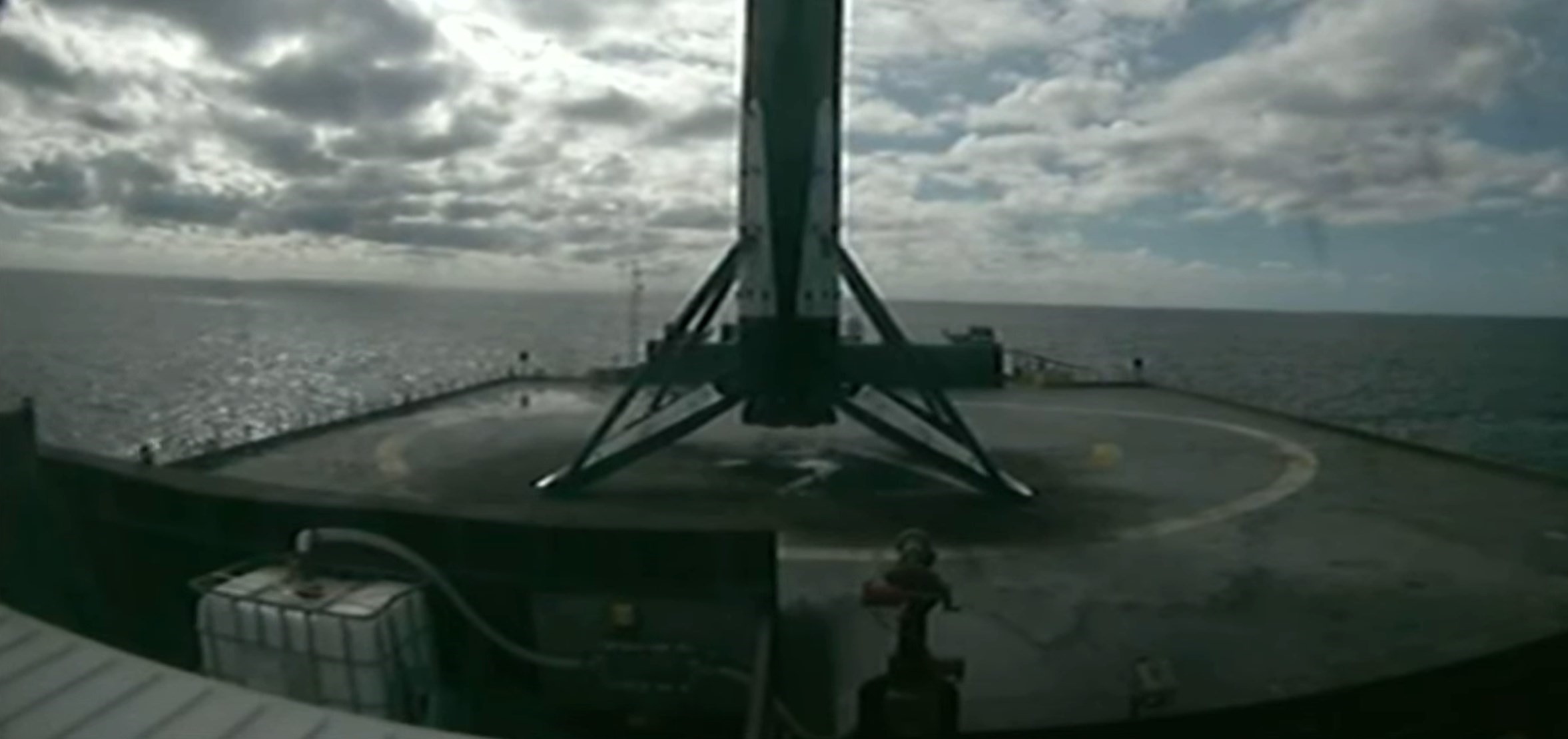
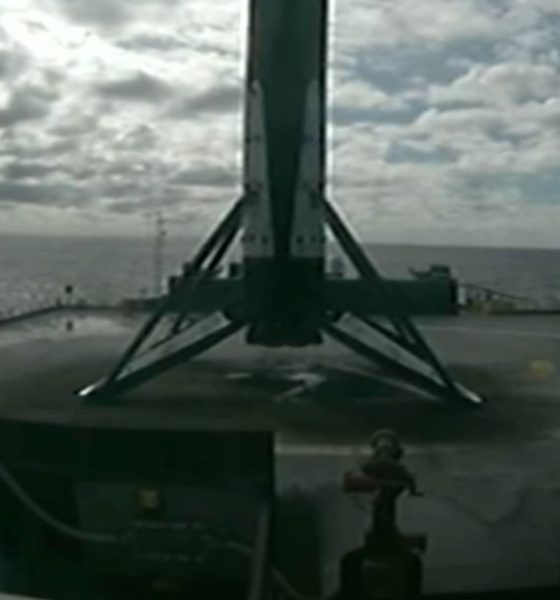
News
SpaceX Falcon 9 booster nails record fourth launch and landing during Starlink-1
For the first time ever, SpaceX has successfully launched and landed the same Falcon 9 booster on four separate orbital-class missions, pushing the rocket’s Block 5 upgrade one step closer to realizing its ambitious design goals.
After an unprecedented lull of more than three months between launches, SpaceX has successfully returned to flight with its internal Starlink-1 mission, simultaneously crossing off multiple rocket reusability milestones. In terms of value added, Falcon 9 booster B1048’s reflight was the most important non-satellite achievement of the mission.
Impressively, B1048 has now successfully launched and landed on four separate occasions, a first for all Falcon 9 or Heavy boosters. Some nine minutes after lifting off from Cape Canaveral, Florida’s LC-40 launch pad, B1048 came to a gentle, near-bullseye halt aboard drone ship Of Course I Still Love You (OCISLY), stationed some 630 km (340 mi) northeast of the Florida coast.
With the successful completion of Starlink-1, B1048 alone has now collectively supported the launch of more than 35 metric tons (77,000 lb) into Earth orbit, as well as the first attempted (but sadly unsuccessful) commercial Moon landing attempt as part of its third launch in February 2019. This particular tidbit is noteworthy because it likely makes B1048 the first Falcon 9 booster to help orbit more than twice the payload mass it would otherwise be capable of launching in a single mission, an impressive reminder of the game-changing success of SpaceX’s reusable rocketry development.
Even then, B1049 is likely close on B1048’s heels – if not already ahead of the booster – in terms of the mass of satellites it has singlehandedly helped to place in orbit.
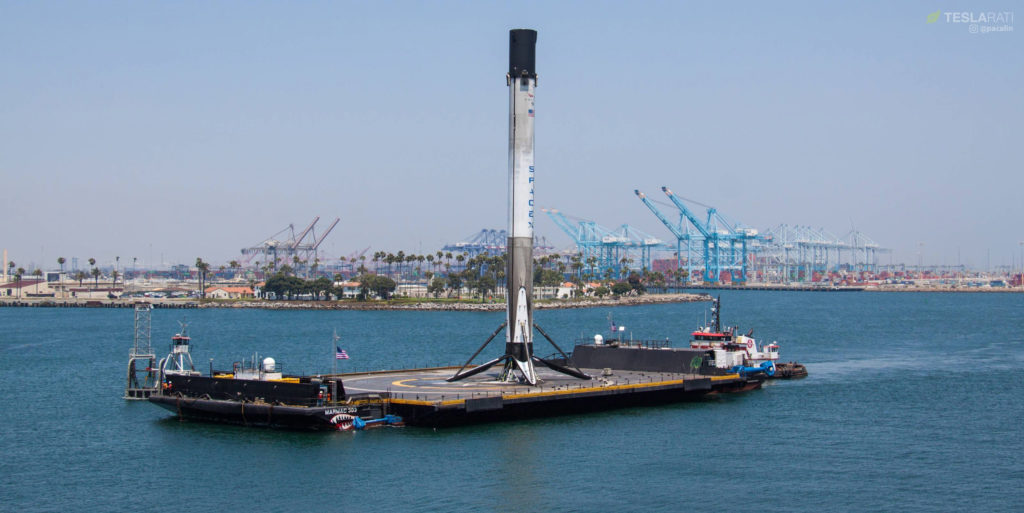
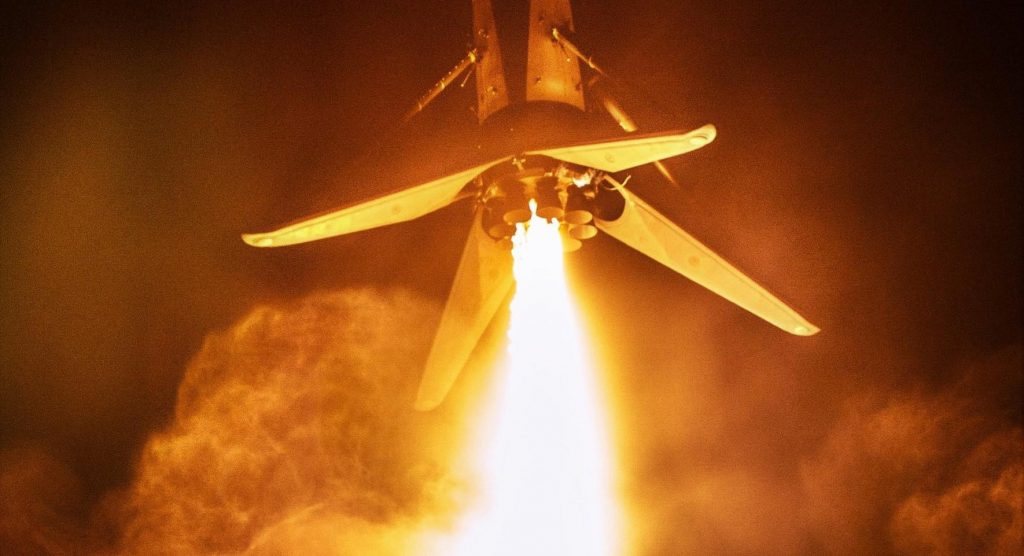
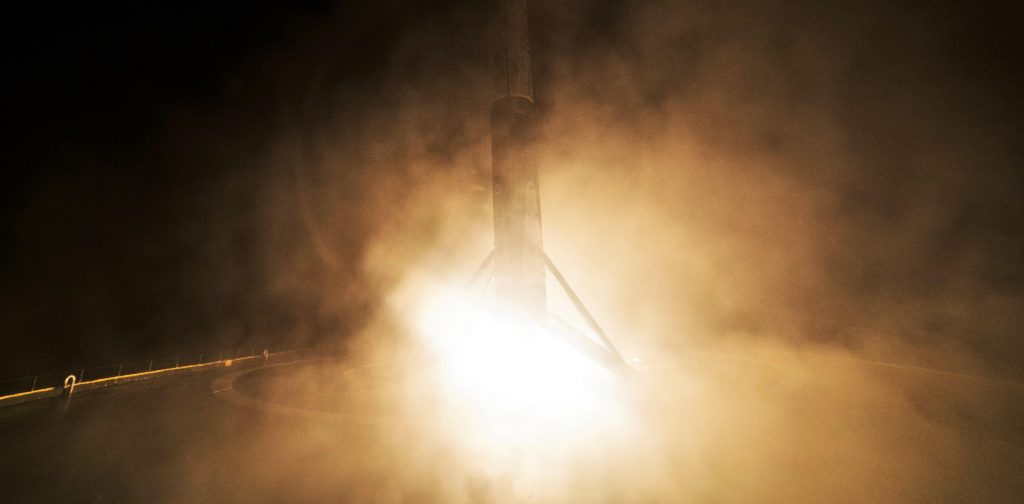
Aside from Falcon 9 B1048’s historic fourth launch and landing, Starlink-1 also marked the first time SpaceX has launched a flight-proven payload fairing, a huge step towards ensuring that nearly all future Falcon launches are up to 80% flight-proven and 80% reusable. Starlink-1’s payload fairing previously flew on Falcon Heavy Block 5’s Arabsat 6A launch debut back in April 2019, essentially a worst-case scenario for fairing reuse.
That successful reuse in spite of the fairing’s exceptionally extreme launch and recovery conditions suggests that almost any fairing recovered in the future will capable of at least one reuse, be it on internal Starlink missions if not customer launches. CEO Elon Musk has previously indicated that Falcon 9 (and Heavy) fairings represent approximately 10% of the cost of Falcon 9 launches, meaning that each set of halves has a price tag of roughly $6 million. Additionally, it’s believed that Falcon fairing production has some of the longest lead-time aspects of any aspect of SpaceX rocket manufacturing, to the point that fairings could easily become a bottleneck for launch cadence without expensive production facility upgrades.

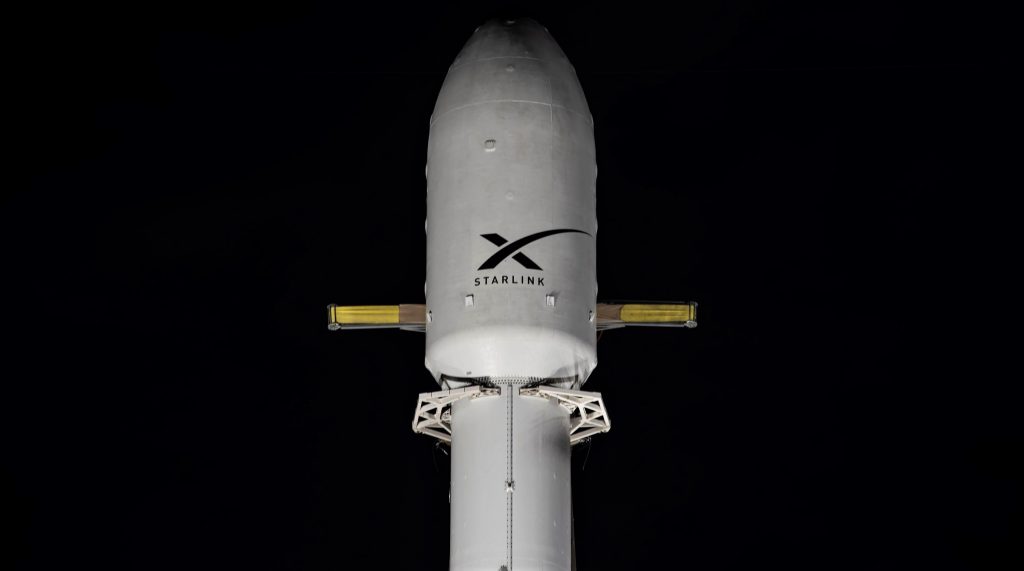
Instead, SpaceX may have chosen to spend a similar amount of time and money making Falcon fairings routinely recoverable and reusable. That program crossed a turning point in June and August 2019, when fairing recovery ship GO Ms. Tree (formerly Mr. Steven) successfully caught two fairing halves in a row, unequivocally proving that the challenging catches are repeatable. Three months later, November 11th’s Starlink-1 launch has also proven that fairings can be reused even without a successful catch, meaning that it will likely be far easier and far more viable to reuse fairings that have been saved from ocean baths.
Unfortunately, SpaceX had to call off an attempted dual recovery of both fairing halves and GO Ms. Chief’s first operational catch attempt due to high seas in the recovery area. Prior to her remaining, similar sea conditions destroyed and broke off two of Mr. Steven’s arms while traveling to the recovery area, and SpaceX has clearly learned from that experience.
SpaceX’s Starlink-1 launch webcast can be watched in full at the link below.
Check out Teslarati’s Marketplace! We offer Tesla accessories, including for the Tesla Cybertruck and Tesla Model 3.

News
Tesla FSD (Supervised) fleet passes 8.4 billion cumulative miles
The figure appears on Tesla’s official safety page, which tracks performance data for FSD (Supervised) and other safety technologies.

Tesla’s Full Self-Driving (Supervised) system has now surpassed 8.4 billion cumulative miles.
The figure appears on Tesla’s official safety page, which tracks performance data for FSD (Supervised) and other safety technologies.
Tesla has long emphasized that large-scale real-world data is central to improving its neural network-based approach to autonomy. Each mile driven with FSD (Supervised) engaged contributes additional edge cases and scenario training for the system.
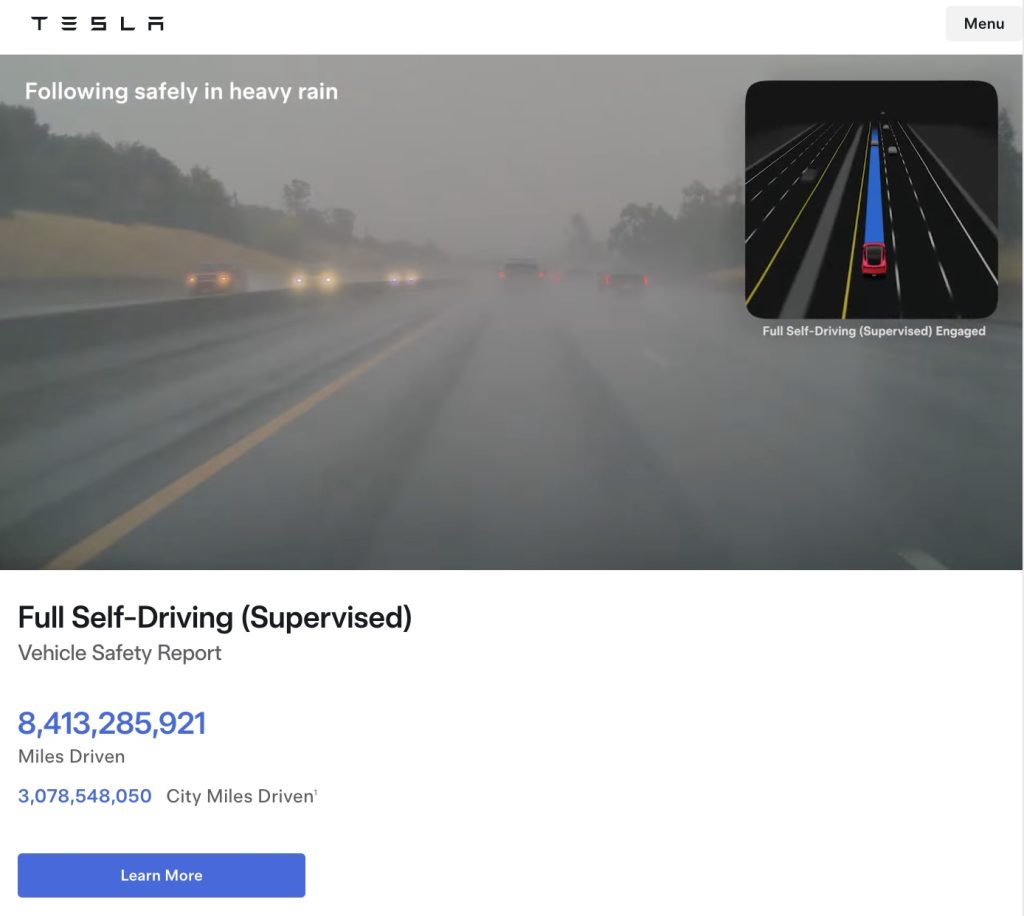
The milestone also brings Tesla closer to a benchmark previously outlined by CEO Elon Musk. Musk has stated that roughly 10 billion miles of training data may be needed to achieve safe unsupervised self-driving at scale, citing the “long tail” of rare but complex driving situations that must be learned through experience.
The growth curve of FSD Supervised’s cumulative miles over the past five years has been notable.
As noted in data shared by Tesla watcher Sawyer Merritt, annual FSD (Supervised) miles have increased from roughly 6 million in 2021 to 80 million in 2022, 670 million in 2023, 2.25 billion in 2024, and 4.25 billion in 2025. In just the first 50 days of 2026, Tesla owners logged another 1 billion miles.
At the current pace, the fleet is trending towards hitting about 10 billion FSD Supervised miles this year. The increase has been driven by Tesla’s growing vehicle fleet, periodic free trials, and expanding Robotaxi operations, among others.
With the fleet now past 8.4 billion cumulative miles, Tesla’s supervised system is approaching that threshold, even as regulatory approval for fully unsupervised deployment remains subject to further validation and oversight.
Elon Musk
Elon Musk fires back after Wikipedia co-founder claims neutrality and dubs Grokipedia “ridiculous”
Musk’s response to Wales’ comments, which were posted on social media platform X, was short and direct: “Famous last words.”
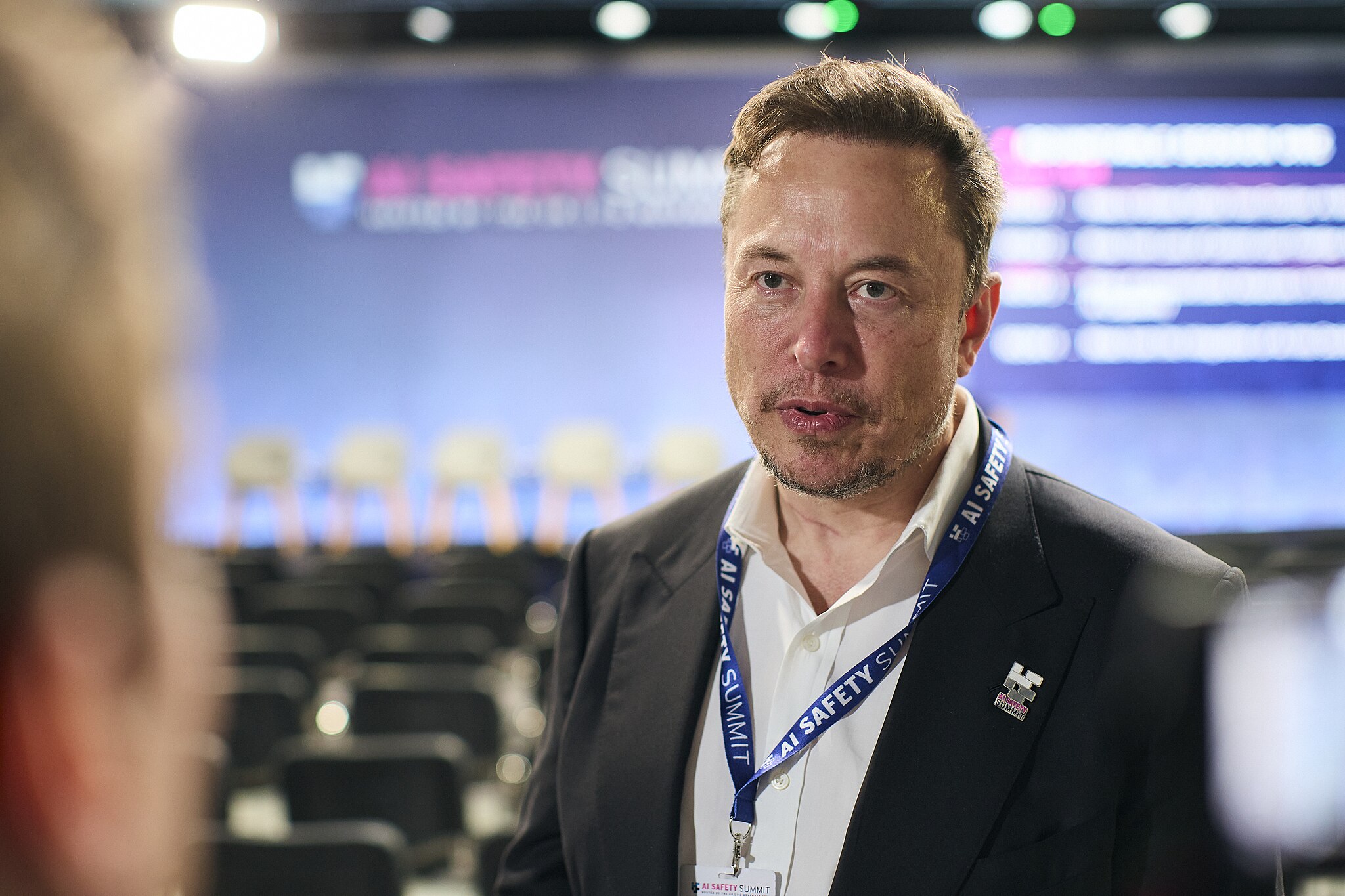
Elon Musk fired back at Wikipedia co-founder Jimmy Wales after the longtime online encyclopedia leader dismissed xAI’s new AI-powered alternative, Grokipedia, as a “ridiculous” idea that is bound to fail.
Musk’s response to Wales’ comments, which were posted on social media platform X, was short and direct: “Famous last words.”
Wales made the comments while answering questions about Wikipedia’s neutrality. According to Wales, Wikipedia prides itself on neutrality.
“One of our core values at Wikipedia is neutrality. A neutral point of view is non-negotiable. It’s in the community, unquestioned… The idea that we’ve become somehow ‘Wokepidea’ is just not true,” Wales said.
When asked about potential competition from Grokipedia, Wales downplayed the situation. “There is no competition. I don’t know if anyone uses Grokipedia. I think it is a ridiculous idea that will never work,” Wales wrote.
After Grokipedia went live, Larry Sanger, also a co-founder of Wikipedia, wrote on X that his initial impression of the AI-powered Wikipedia alternative was “very OK.”
“My initial impression, looking at my own article and poking around here and there, is that Grokipedia is very OK. The jury’s still out as to whether it’s actually better than Wikipedia. But at this point I would have to say ‘maybe!’” Sanger stated.
Musk responded to Sanger’s assessment by saying it was “accurate.” In a separate post, he added that even in its V0.1 form, Grokipedia was already better than Wikipedia.
During a past appearance on the Tucker Carlson Show, Sanger argued that Wikipedia has drifted from its original vision, citing concerns about how its “Reliable sources/Perennial sources” framework categorizes publications by perceived credibility. As per Sanger, Wikipedia’s “Reliable sources/Perennial sources” list leans heavily left, with conservative publications getting effectively blacklisted in favor of their more liberal counterparts.
As of writing, Grokipedia has reportedly surpassed 80% of English Wikipedia’s article count.
News
Tesla Sweden appeals after grid company refuses to restore existing Supercharger due to union strike
The charging site was previously functioning before it was temporarily disconnected in April last year for electrical safety reasons.
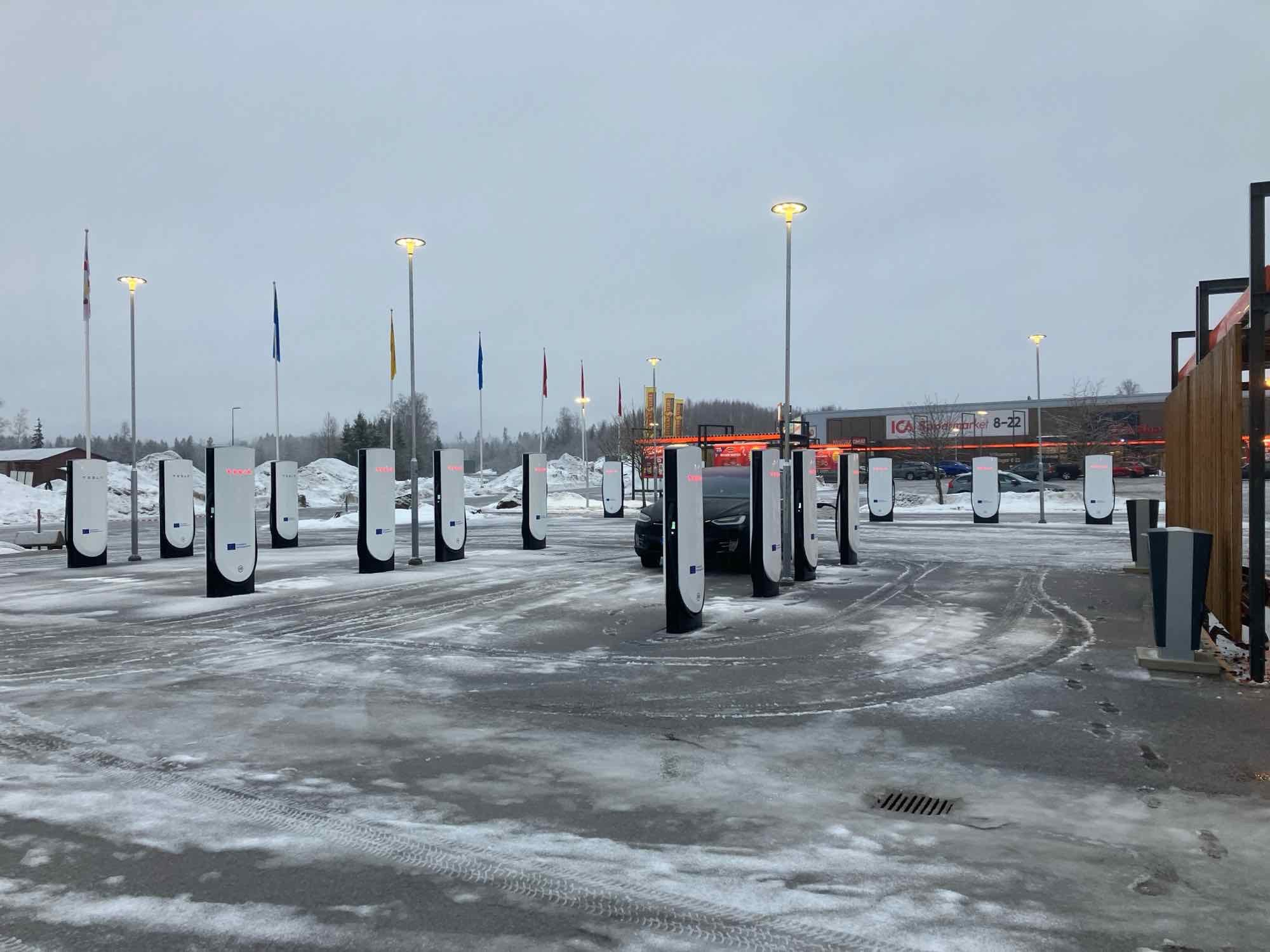
Tesla Sweden is seeking regulatory intervention after a Swedish power grid company refused to reconnect an already operational Supercharger station in Åre due to ongoing union sympathy actions.
The charging site was previously functioning before it was temporarily disconnected in April last year for electrical safety reasons. A temporary construction power cabinet supplying the station had fallen over, described by Tesla as occurring “under unclear circumstances.” The power was then cut at the request of Tesla’s installation contractor to allow safe repair work.
While the safety issue was resolved, the station has not been brought back online. Stefan Sedin, CEO of Jämtkraft elnät, told Dagens Arbete (DA) that power will not be restored to the existing Supercharger station as long as the electric vehicle maker’s union issues are ongoing.
“One of our installers noticed that the construction power had been backed up and was on the ground. We asked Tesla to fix the system, and their installation company in turn asked us to cut the power so that they could do the work safely.
“When everything was restored, the question arose: ‘Wait a minute, can we reconnect the station to the electricity grid? Or what does the notice actually say?’ We consulted with our employer organization, who were clear that as long as sympathy measures are in place, we cannot reconnect this facility,” Sedin said.
The union’s sympathy actions, which began in March 2024, apply to work involving “planning, preparation, new connections, grid expansion, service, maintenance and repairs” of Tesla’s charging infrastructure in Sweden.
Tesla Sweden has argued that reconnecting an existing facility is not equivalent to establishing a new grid connection. In a filing to the Swedish Energy Market Inspectorate, the company stated that reconnecting the installation “is therefore not covered by the sympathy measures and cannot therefore constitute a reason for not reconnecting the facility to the electricity grid.”
Sedin, for his part, noted that Tesla’s issue with the Supercharger is quite unique. And while Jämtkraft elnät itself has no issue with Tesla, its actions are based on the unions’ sympathy measures against the electric vehicle maker.
“This is absolutely the first time that I have been involved in matters relating to union conflicts or sympathy measures. That is why we have relied entirely on the assessment of our employer organization. This is not something that we have made any decisions about ourselves at all.
“It is not that Jämtkraft elnät has a conflict with Tesla, but our actions are based on these sympathy measures. Should it turn out that we have made an incorrect assessment, we will correct ourselves. It is no more difficult than that for us,” the executive said.








